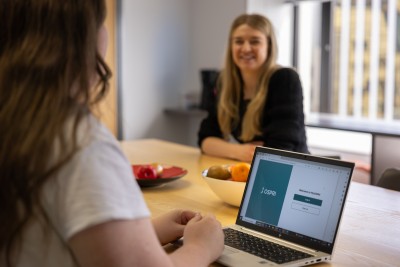 Moving Day - Be a mate, update NAIT
Moving Day - Be a mate, update NAIT
If you need help meeting your NAIT obligations, having an extra pair of hands to manage your NAIT number can be useful. However, it’s important to make sure that they are added correctly and safely.
Sharing your login details is a serious privacy concern which can open your NAIT account, as well as your other online accounts, to various dangerous risks.
Instead, when adding a user to your NAIT number, make sure to add them as a PICA delegate. Assigning a person as a delegate authorizes them to access to your NAIT number and lets them assist with day-to-day management of your cattle or deer. This could be farm staff, family members or another farmer who is a registered PICA.
If somebody is registered as a delegate on your NAIT number, they can also speak to our Support Centre.
PICA delegates can manage most tasks in NAIT on your behalf, including:
- maintaining tag and animal information
- creating sending and receiving movements
- updating your contact details.
Alternatively, you can also appoint an information provider to your NAIT number, who can also complete NAIT tasks on your behalf. For example, your local livestock agent may be an information provider.
On your behalf, they can:
- register a person as a PICA or delegate
- register animals
- update animal information
- record animal movements.
The registered PICA is still legally responsible for meeting their NAIT obligations.
You can find out more about delegates and information providers using the link below.
 OSPRI at Fieldays 2023
OSPRI at Fieldays 2023
It was a busy four days for our team at Mystery Creek this year, with a larger turnout of attendees than in 2022.
The team was more than happy to have a chat and assist with sign-ups for our new online customer portal - MyOSPRI, as well as help with any NAIT and TBfree queries that event goers needed support with.
Our Chief Executive Steve Stuart and members of the OSPRI Board were also at the stand, talking to farmers and helping with queries.
This year we teamed up with the Rural Support Trust to give back to our farmers who are doing it tough. For every MyOSPRI sign up or query on one of our programmes, we donated a dollar to the good folks at the Rural Support Trust. Over the four days, we raised $570!
We couldn't have done this without your support at Fieldays - many thanks to everyone who stopped in to have a chat. We enjoyed meeting you and we're looking forward to seeing you again next year.
 Win a $200 Prezzy card — share your thoughts on our educational material
Win a $200 Prezzy card — share your thoughts on our educational material
Webpages, video tutorials, or downloadable full reference guides – how do you like to get help when using our NAIT and MyOSPRI systems? Your feedback matters.
Take this quick survey about our educational material and support resources and you could win a $200 Prezzy card!
Why are we doing this?
We are reviewing the educational material and support resources on our website. We want to ensure they are:
- easy to understand and follow
- accessible
- available in formats that suit you.
This survey will give us valuable insights into your preferences for different kinds of support resources. This will help us enhance our systems' support resources.

Photo credit: Dave Allen, NIWA
Hawke's Bay cyclone response update
Following Cyclone Gabrielle and the impact this has had on the Hawke’s Bay, a short pause in operations was then followed by some aerial and ground control operations being pushed back further to allow for a re-engagement process. Some of this re-engagement is continuing, as those affected endeavour to repair and recover what they can.
Regional Partner Programme Extension – Tess Appleby says this operational pause and re-engagement with our community has been a measured and respectful approach that has been well received. “Because the cyclone affected many of the farmers in the area, we wanted to be mindful of what everyone was going through and to take some time to ‘take stock’ before resuming aerial operations.”
Aerial operations that are now in the re-engagement phase include Maungataniwha, Waitara (& Te Awahohonu) and Coach Road. The process can be tracked on our website via the link below.
In terms of the ground operations, there were a number of operations that were able to continue quite quickly after the cyclone and subsequent to that other operations have also been able to continue. Some of these include Rissington, Glengarry, Patoka, Whanawhana and Waipunga, which are some of our most risky disease areas. Control contractors are controlling as much land & habitat as they can safely access.
A study is being planned in Hawke’s Bay to investigate what kind of impact (if any) Cyclone Gabrielle has had on the possum population. We’ll be looking to see whether the disease risk within the region has changed. The research will commence in July and will include a survey of possum locations and densities and will draw on data from regional councils and locals in the area. The intent is that we engage the community and get their interest as well.

